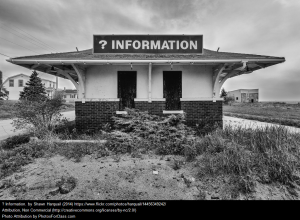
It’s important to understand the broader information landscape, as changes occur at a rapid rate. These changes take the form of developments in information, technology, and the users. Floridi (2007) describes the information landscape as an infosphere. The ease and increased access to information (frictionless infosphere) means people will have no right to ignore information, they will share a vast common knowledge which will develop over time, and experience an increase in accountability (Floridi, 2007). It is important to understand that this changing landscape will affect all aspects of our lives in a similar way that the industrial revolution affected the lives of those living during the 18th century. All aspects of information in our lives will change including the devices that deliver the information to us. This reontologisation means that as we come to live in an infosphere our lives will become increasingly synchronised, delocalised and correlated (Floridi, 2007). Ultimately, we will live in a space and time that we can no longer log out of. Floridi (2007) goes on to explain that older generations will be the last to remember the world when it could be both offline and online. This means, as TLs, our students and future learning spaces will become increasingly connected. We are already experiencing an environment where we log-on but no off. Our students, and at times ourselves, are connected informational organisms (inforgs), as they spend “more time connected than sleeping” (Floridi, 2007, p.63).
The implications of this mean that, as a TL, I will need to be flexible and up-to-date with the modes and devices which deliver information. With the developing infosphere, modes of communication, the amount of information available, and modes of interaction are simultaneously going through a phase of reengineering. My responsibility as an information specialist is to work with these changes to better support my students and staff in their acquisition of information and transference of knowledge. On a final, and specific note, I can already see that in relation to the cultural definition of the information society there will be a need to upskill our students in digital reading and meaning making; particularly, with the changes in delivery of NAPLAN.
References
Floridi, L. (2007). A Look into the Future Impact of ICT on Our Lives. Information Society, 23(1), 59-64. doi:10.1080/01972240601059094
Webster, F. (2014). Theories of the Information Society. Florence: Taylor and Francis. Retrieved from http://ebookcentral.proquest.com.ezproxy.csu.edu.au/lib/csuau/detail.action?docID=1656811
[Forum Reflection: Module 2.2]